“The Work We Do” is an interview series that asks creatives with daydream-worthy jobs how they got where they are—and what it’s like to live a day in their shoes. This week, I’m spotlighting Mili Suleman, a Dallas-based graphic designer, textile designer, and all-around creative entrepreneur.
Mili first wrote to me over a year ago and I found myself scrolling through her lookbook and process photos for far longer than I’d intended to. I was intrigued to learn about how one starts a fabric studio—particularly in Dallas, when so often I read about makers on the two coasts—and am happy that Mili agreed to talk more about being an entrepreneur for this series.
You’re the owner of two creative business—a graphic and packaging design business, and a textile company. Where did you start?
I was running my own full-time graphic design business—I still do and love it—but I realized I needed something else. I wanted to start planting seeds for a possible family business that could sustain itself in the long run. Additionally, I dearly missed my family who live in the Middle East, so I decided to take an explorative trip to India with my parents. Before I went, I was already in a ‘searching’ mode and had spent a lot of money attending textile shows and traveling. But when I got to India, my mother and I were both drawn to the heritage textile processes—and we were genuinely bonding again, which was wonderful. We’re both very creatively inclined. In the end, it turned out that working with textiles was a great way to tie in my graphic design skills, as well.
Were there any clues in your earlier life that suggested you’d follow this career path?
I was introduced to textiles at a very young age—the women in my family would go fabric shopping together and then hunt for patterns to get clothes made at the tailor. That was something of a rite of passage, and always incredibly fun. But as a child, I wanted to be a marine biologist, then a fashion designer—both things I’m still curious about!
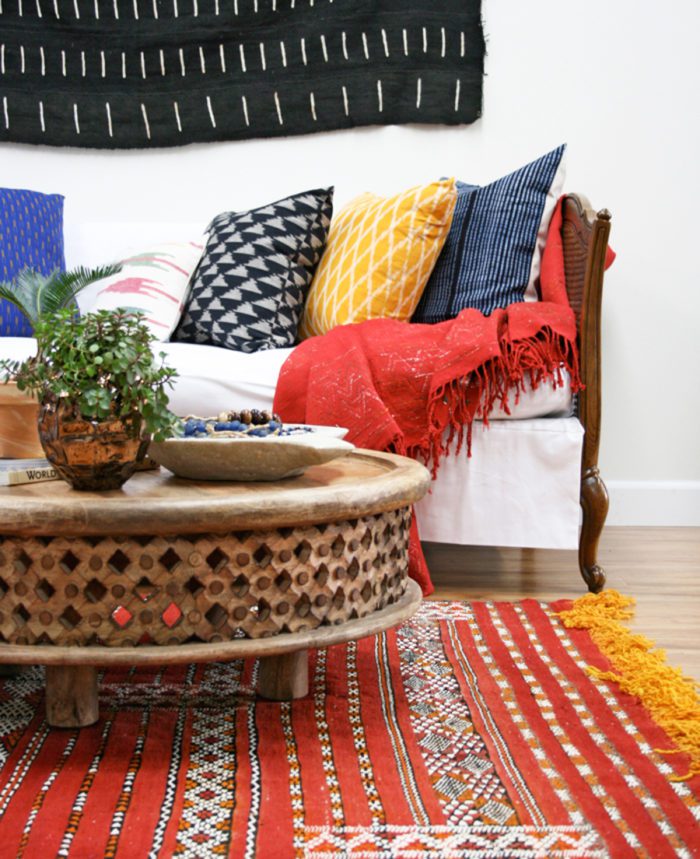
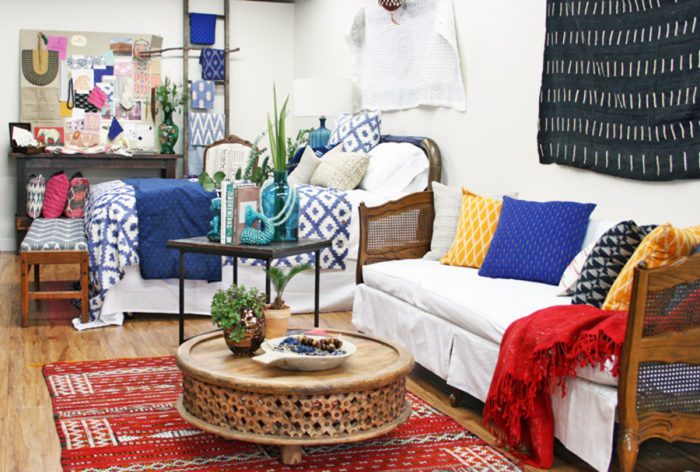
It must be mind-boggling to wear so many professional and creative hats. Is that overwhelming? How do you juggle it all?
Each business presents different challenges. Since I’ve already established the graphic design and branding businesses, the inquiries come in on their own. The textiles business is a totally different animal. It’s involved building from the ground up, and honestly, everything is a challenge. Positioning Kufri Life within an already niche market; figuring out what clients want; marketing constantly; working on product development; designing; sampling; shipping; and nurturing business relationships—it’s a beast. People who make it look easy either have the contacts already, have a partner, or are really good at playing it cool.
What has it been like to start your textile business in Texas, away from a city like New York? And what’s it like overseeing production abroad?
It’s been challenging doing this in Dallas, because the general aesthetic here tends to be that of a perfect model home, and the caliber of shows to support small businesses like mine is lacking. Yes, there are small craft shows and a trade show, but it’s not the energy and creative quality of what you’d see in Brooklyn or L.A. For independent textile or product designers, this is both good and bad—good because there’s opportunity to fill a gap, and not so good because it takes time to develop a desire within the market.
Our textile production is done in India and overseeing production from Dallas is tricky in respect to color matching. Other than that, it’s fairly good. I’ve worked very hard to find the right artisan villages and to develop good relationships, but it’s still important to go once a year in person. Finished goods are produced in Dallas, which is convenient.
Have you been able to find a creative community in your area that you can turn to for support?
This year, my focus has been to seek out like-minded creatives in Dallas via Instagram, and I’m happy to announce I’ve met some great people with tremendous creative energy who own wonderful independent design and product businesses. It’s just a matter of creating enough noise and starting something to bring us all together.
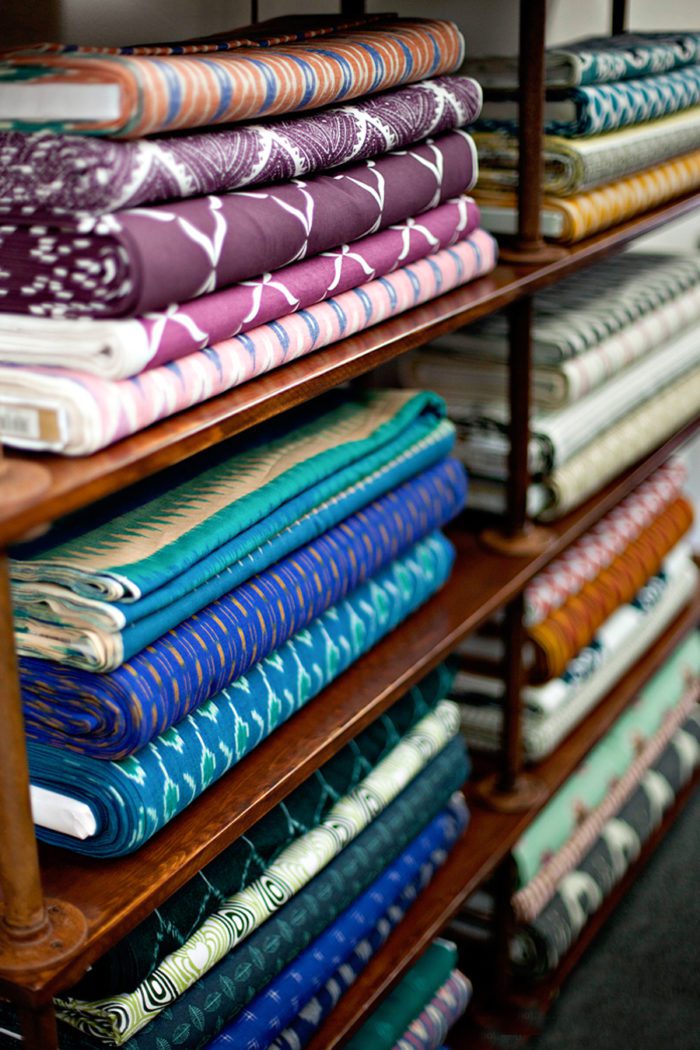
Day to day, what do you spend the bulk of your time doing?
Each day is different, but the bulk of my work involves communication with clients, and overseeing production in India. I also spend a good amount of time on my graphic design projects. I have an hour commute each way, so I come into the studio around 9ish. Then I’ll work on emails, design work, samples, cutting fabric, shipping, working with the seamstress—it’s all in a days work. I get back home around 8 or 9PM and I’ll finish up emails there.
What’s been the most valuable lesson you’ve learned along the way? Is there anything you wish you’d known before you got started?
Stick to one product category and develop a strong, distinctive look. It’s been tough for me to do that because I love so many different things—but I’m trying to implement that philosophy little by little so I don’t feel like I’m losing the bulk of what I’ve done.
Looking back, I wish I’d known how much of a niche-industry textiles is. Being a creative, I just blindly assumed people would get it. Had I done a thorough market analysis before starting, things would be different.
What’s made it all worth it?
I love that I’m working towards building something larger than life, even though I’m downright exhausted and everything seems all over the place right now. Business is in my blood, and I love making things happen. I also love the genuine connections I’ve made, from strengthening my bond with my mother to meeting strangers around the globe who’ve turned into friends.
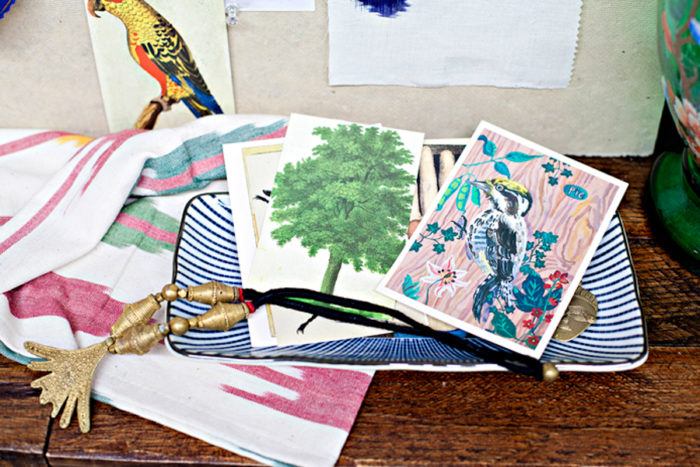
It seems you’re always on the move. What’s on the horizon going forward?
On a smaller scale, I’m working on an exciting woven collection for our in-house fabrics line. But from a larger perspective, I’m working toward establishing Kufri Life as the go-to resource for designers and showrooms who want custom and private label heritage textiles made. I’m most excited about watching the private label arm take shape and grow.
Thank you so much, Mili. Learn more at Kufri Life, LAUNCH Private Label, and Schnauz Design. Photographs of folded fabrics and memento tray by Megan Weaver.
Thank you to Shoko Wanger for her help with this series. Read more about the inspiration behind it.


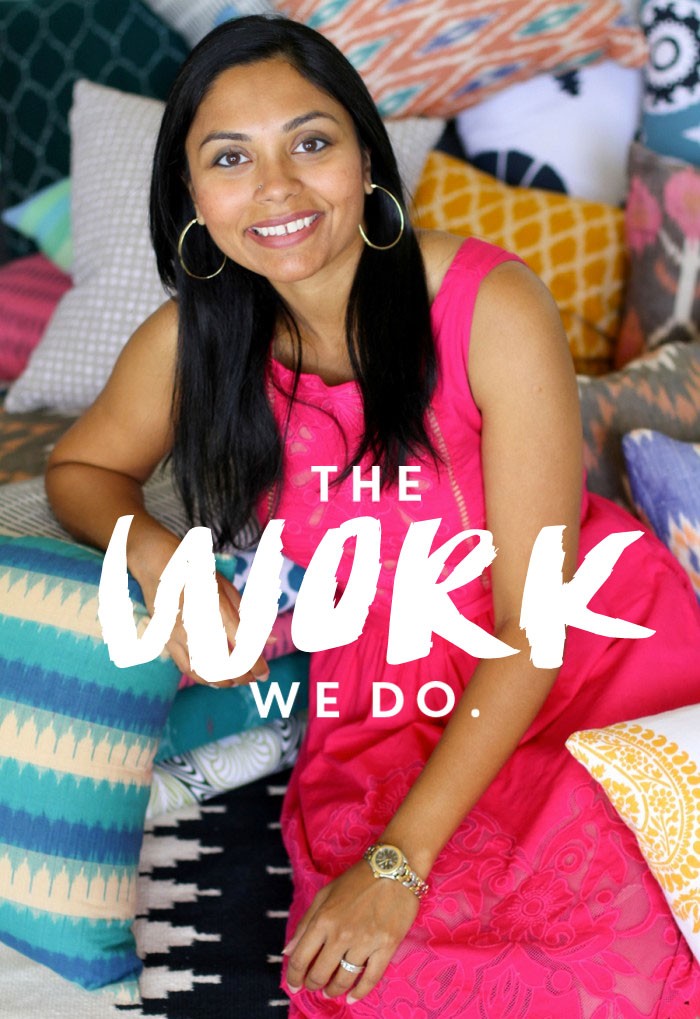
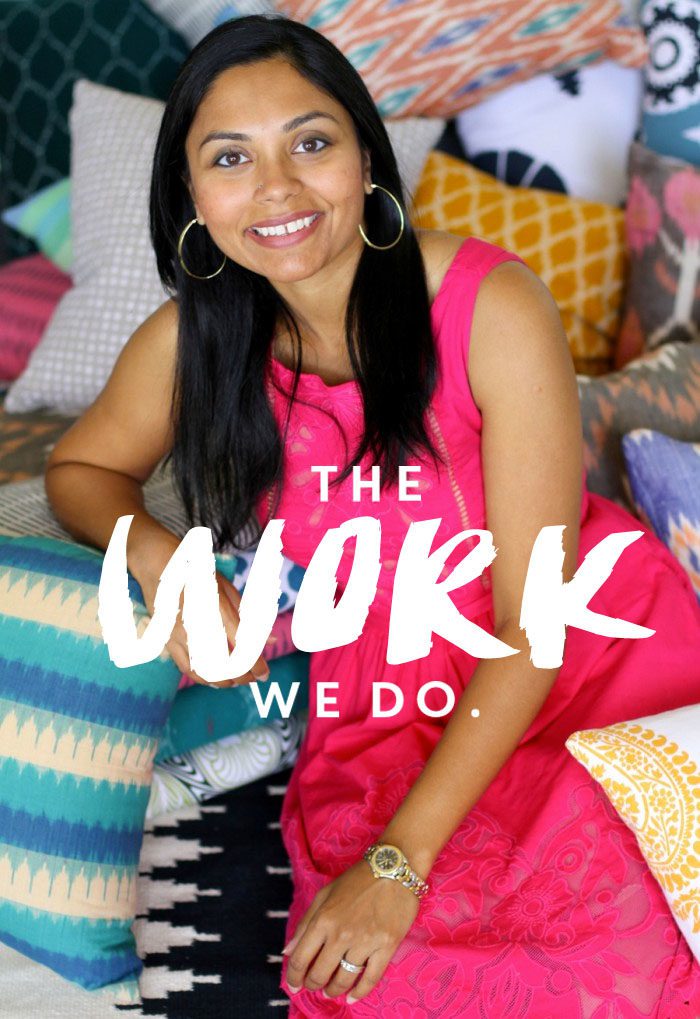
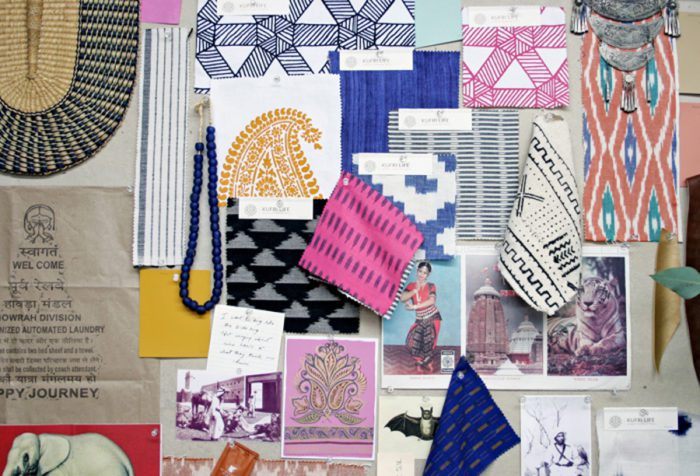
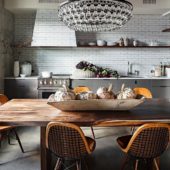
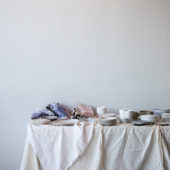
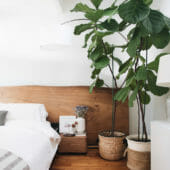
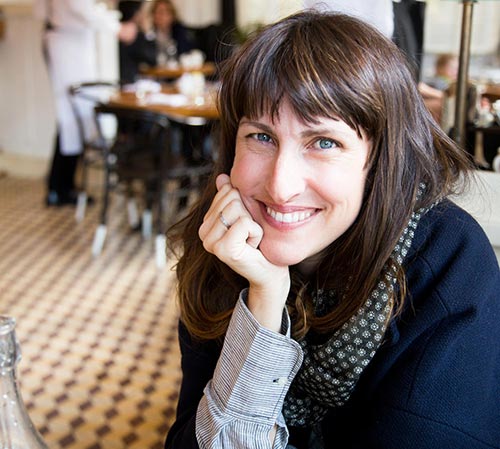

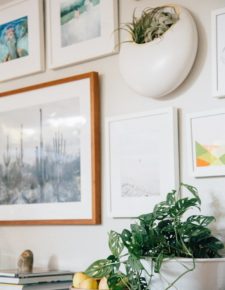
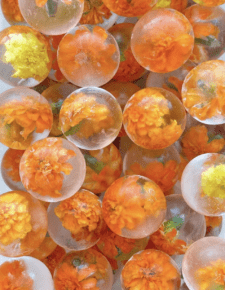
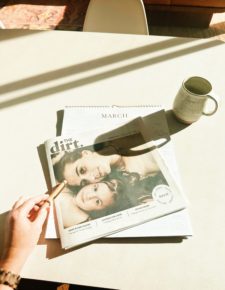
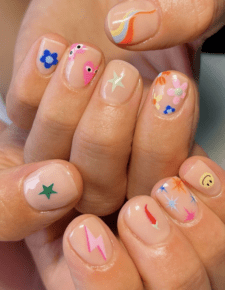
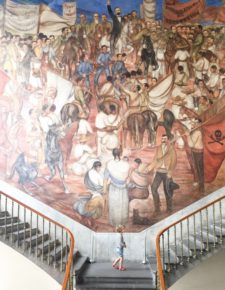
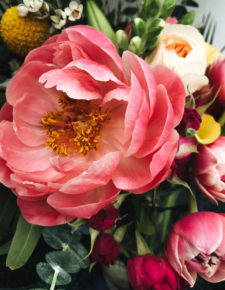
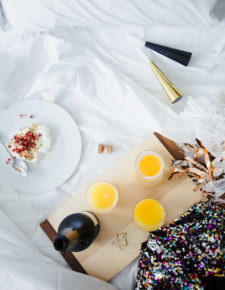

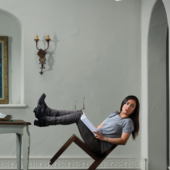
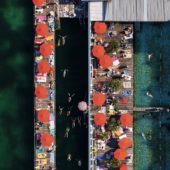
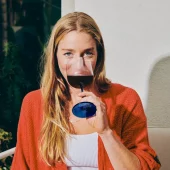
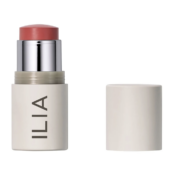
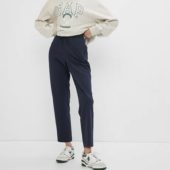
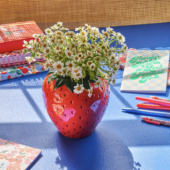
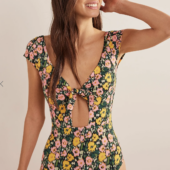
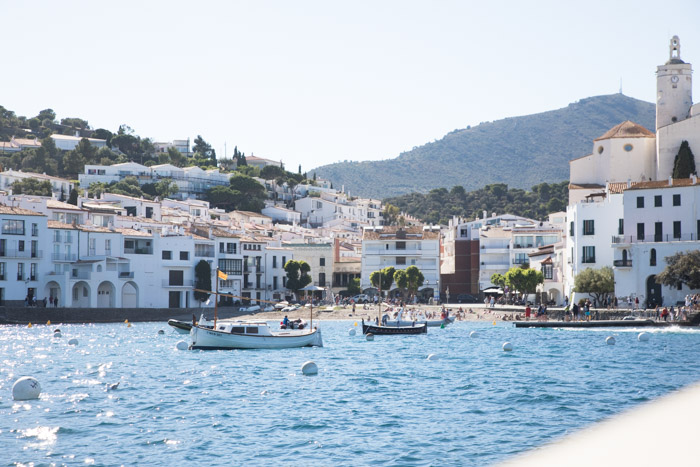
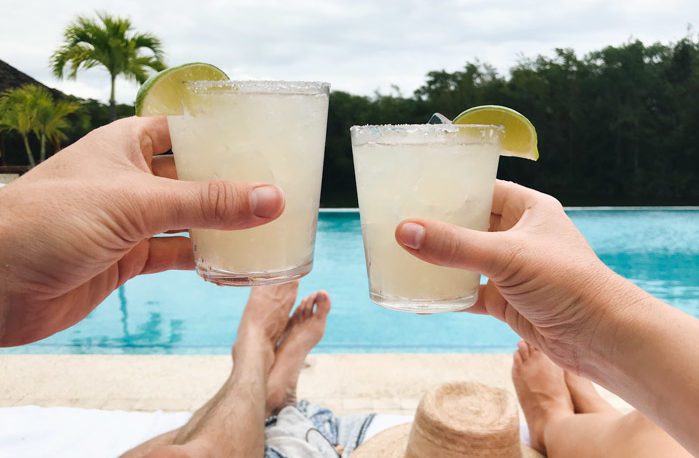
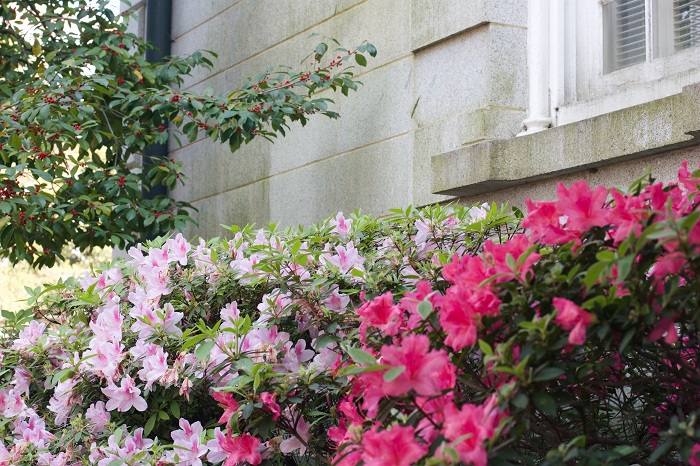
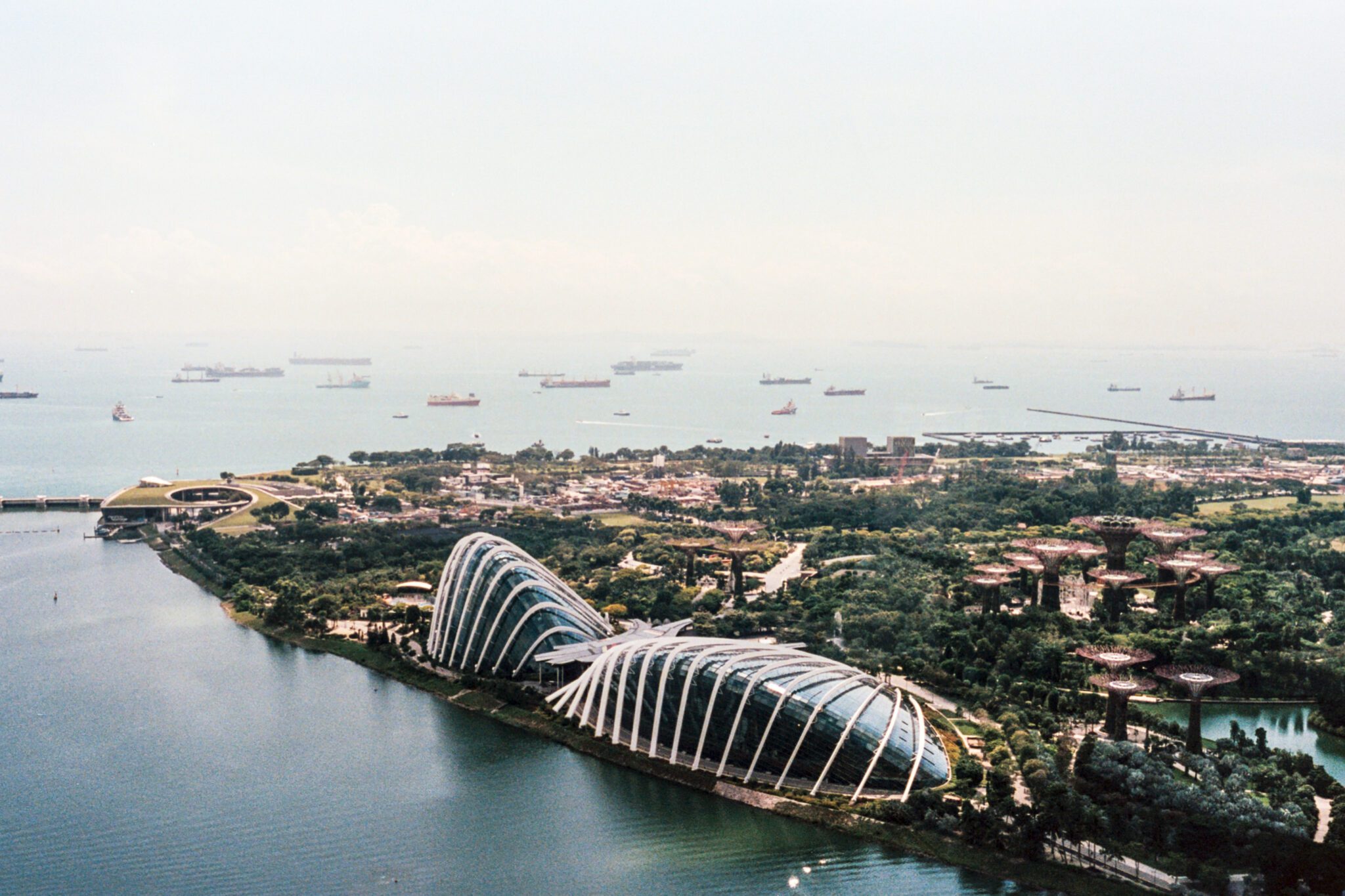
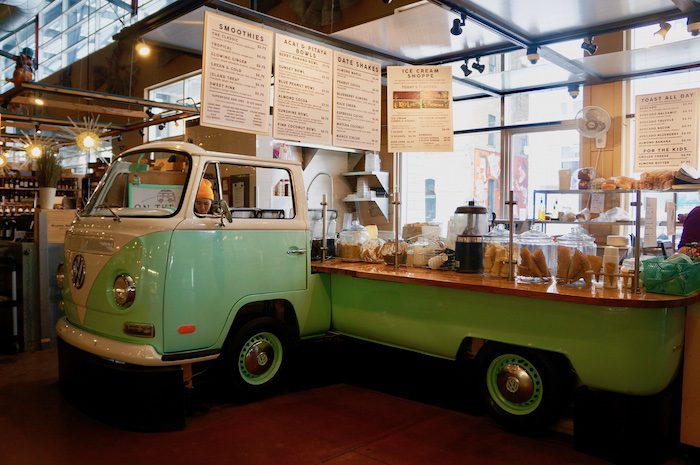
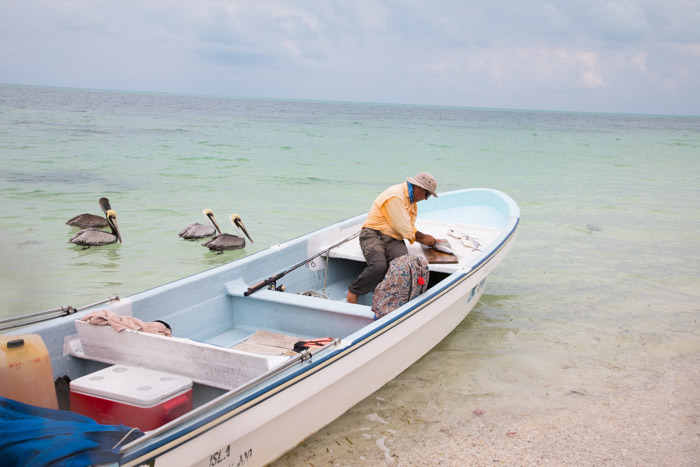
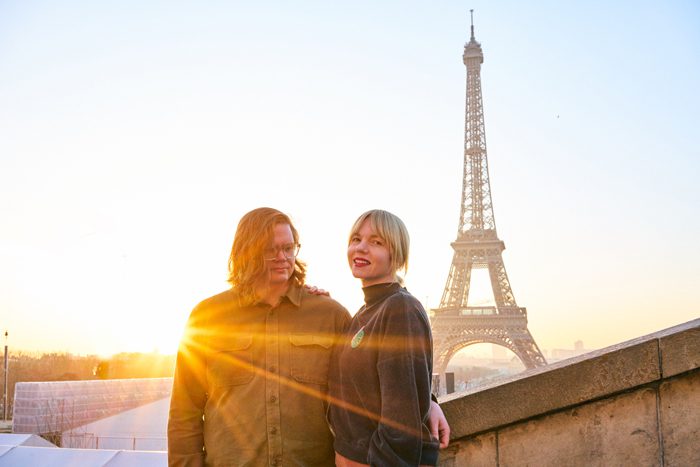
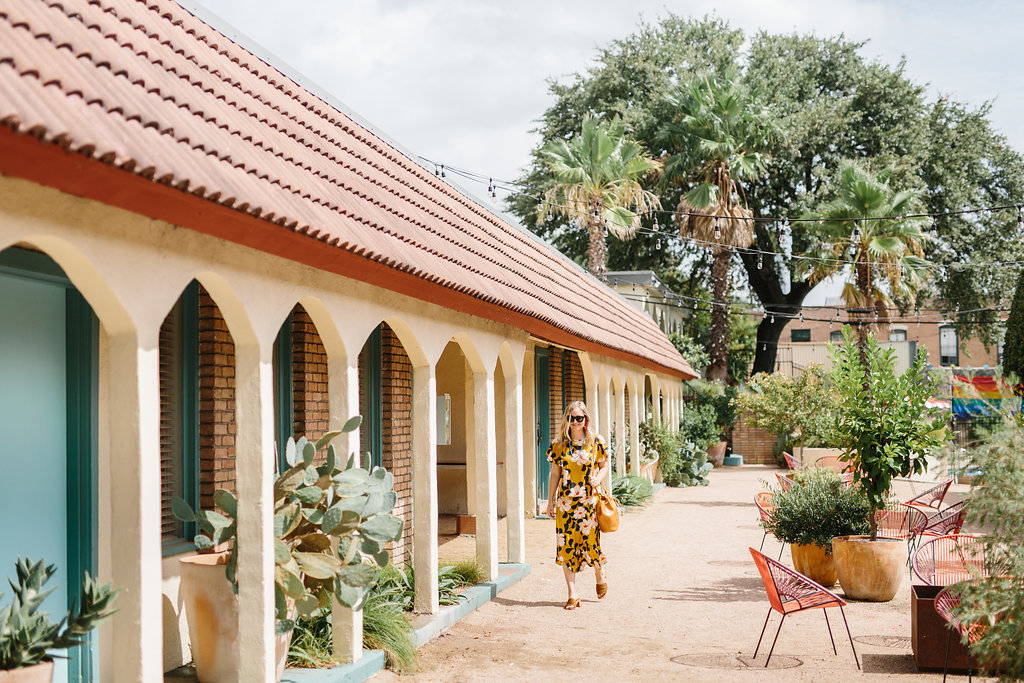
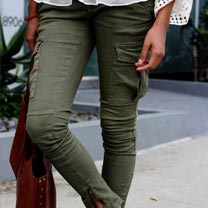
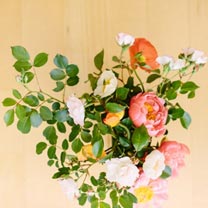
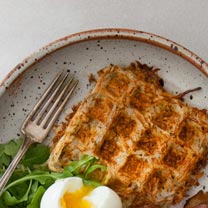
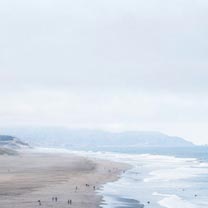
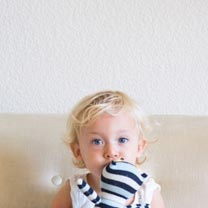

5 Comments